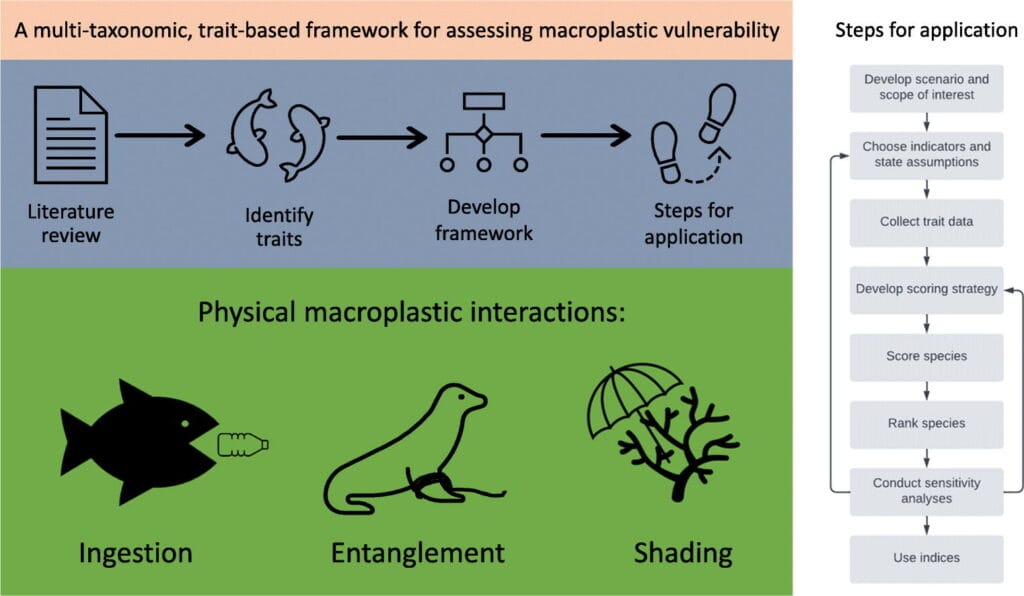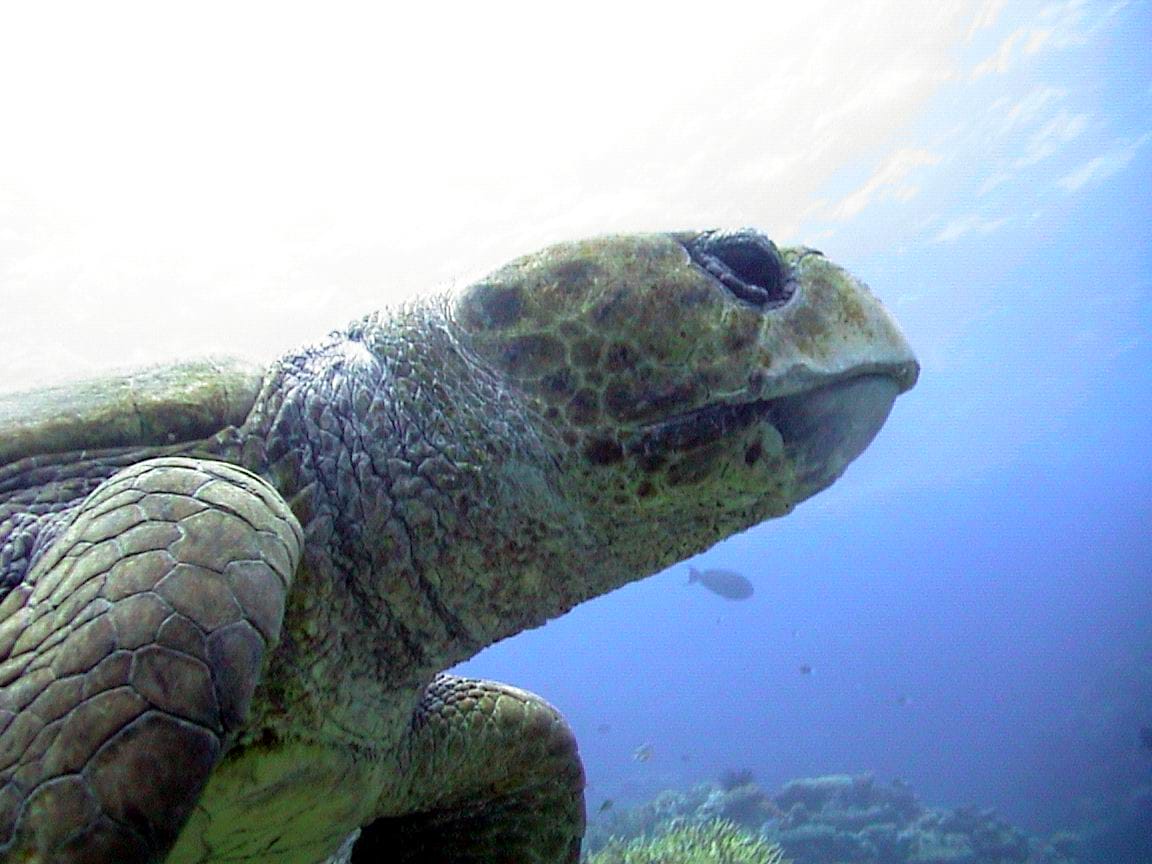Recent Conservation Innovation Lab graduate Dr. Erin Murphy published a paper in Science of the Total Environment about plastic pollution and species vulnerability. Currently, little is known about the higher level effects of plastic pollution and that this paper introduces a new method for evaluating population and species level vulnerability to macroplastic pollution, using species life history traits.

Unlike microplastics, which are often evaluated based on ingestion rates, macroplastics (items larger than 5 mm) can harm animals through various interactions such as entanglement, habitat alteration, and ingestion. The researchers developed a multi-taxonomic, trait-based approach that considers both the characteristics of the plastic debris and the biological traits of different species to predict potential harm. This method allows for a more comprehensive understanding of how macroplastics affect diverse organisms, including those not directly studied. By identifying species most at risk, this framework can inform targeted conservation efforts and policy decisions aimed at mitigating the impact of plastic pollution on ecosystems.
